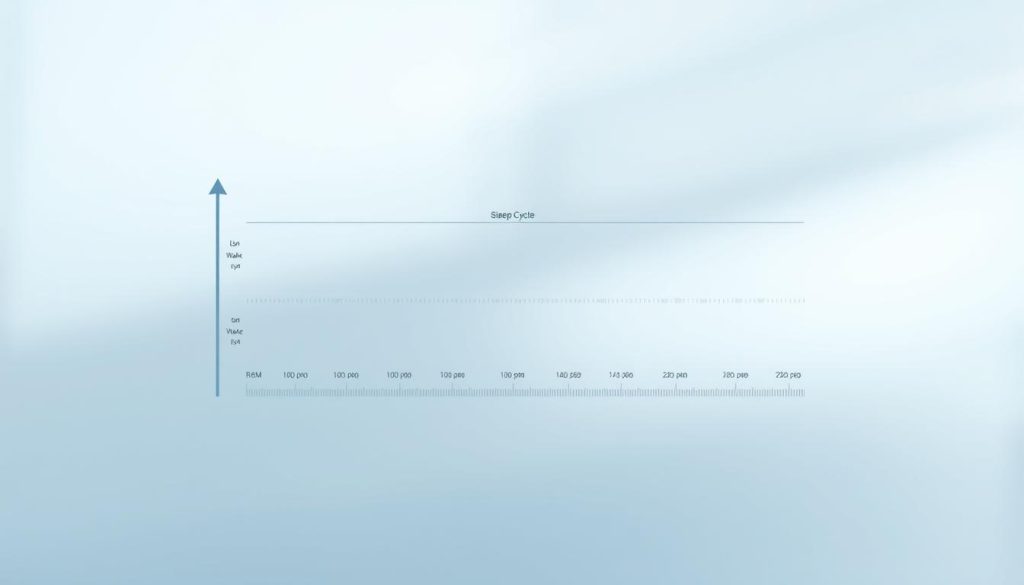The rise of remote work has changed how Americans live their days. Your work-from-home setup affects when you wake up, how well you sleep, and your energy. This link between flexible work and sleep quality impacts millions of workers across the country.
Now, more companies offer remote jobs than ever. This change brings new chances to match work hours with your body’s natural rhythm. Yet, it also brings challenges for keeping a healthy sleep routine.
Remote workers often face challenges without a traditional office. Late emails and flexible hours can mess with your sleep. Bad sleep then hurts your focus, mood, and productivity the next day.
Knowing how work and sleep are connected helps you do better at work and feel better. We’ll look at ways to keep a good sleep routine while enjoying the flexibility of remote work.
Understanding the Work-from-home Trend
Working from home has become a big part of our jobs today. It’s changed how we mix work and personal life. It affects our daily routines and even how we sleep.
The modern job scene offers flexibility we never had before. Now, many jobs let you work from home. This brings both good chances and challenges for everyone.

The Rise of Remote Work
Remote work has grown fast. In recent years, more people are working from home. Thanks to better technology, this shift is easier than ever.
Several things have led to this big change:
- Improved internet and digital tools
- People wanting better work-life balance
- Companies seeing how remote work can help
- Global events making remote work necessary
- Cost savings for both sides
Many companies find remote work makes people more productive. Workers often feel happier when they work from home. This trend is here to stay.
Benefits of Working from Home
Working from home has many perks. It saves time and money by cutting out the commute. This extra time can be for personal things or rest.
Key benefits include:
- More flexibility in your day
- Less money spent on travel
- Better balance between work and life
- A work space that fits you
- More time for family and hobbies
Remote work lets you tailor your work area. You can adjust things like lighting and noise to your liking. This can help you stay focused and comfortable all day.
Challenges of the Remote Work Environment
Remote work has its own set of challenges. It can be hard to separate work from home life. Many struggle to stop working when the day ends.
Common challenges include:
- Harder to keep a regular sleep schedule
- Tendency to work too long
- Less social time with coworkers
- Household tasks can distract you
- It’s hard to know when to stop working
These issues can hurt your sleep and daily habits. Without the structure of an office, it’s tough to stay healthy. The solution is to set boundaries and structure at home.
The Importance of a Healthy Sleep Cycle
Your body’s natural sleep patterns are key to peak productivity and mental clarity. For remote workers, understanding these patterns is crucial. A well-functioning sleep cycle helps you stay focused, make decisions, and maintain energy during work hours.
The link between sleep and daily performance is deep. When working from home, sleep quality supports creativity and emotional stability. Without proper rest, even the best home office setup can’t make up for cognitive decline.
What is a Sleep Cycle?
A sleep cycle is your body’s natural rest progression. Your circadian rhythm controls this, signaling when to be alert and when to sleep. This internal clock responds to light, temperature, and daily routines.
Most people go through four to six sleep cycles each night. Each cycle lasts about 90 to 110 minutes. Knowing your rhythm helps plan bedtimes for refreshing sleep and morning alertness.

Stages of Sleep
Sleep has distinct stages for body and mind recovery. Light sleep starts each cycle, where you transition from wakefulness to deeper rest. Your heart rate slows, and body temperature drops slightly.
Deep sleep follows, offering the most restorative benefits. Your muscles repair, and immune system strengthens. Growth hormone release peaks, supporting health.
REM sleep completes each cycle, focusing on mental restoration and memory processing. Your brain consolidates information, forming long-term memories. Dreams occur during this stage, reflecting brain processing work.
Effects of Sleep on Productivity
Sleep quality affects cognitive performance during work hours. Well-rested individuals solve problems better, make decisions faster, and think more creatively. These skills are crucial for remote workers who need self-motivation.
Poor sleep leads to productivity problems. Concentration is hard, leading to mistakes and longer task times. Emotional regulation suffers, making work interactions stressful and less effective.
Research shows sleep deprivation reduces productivity by up to 25%. For remote workers, this means longer hours to do the same tasks. This disrupts sleep patterns, creating a cycle of problems.
How Remote Work Influences Sleep Patterns
Working from home brings sleep challenges that many didn’t see coming. It changes how we schedule our day and sleep. Knowing these changes helps us understand why sleep might be worse at home than at the office.
When work and home life blend, it’s hard for your brain to know when to rest. This mix-up messes with your body’s natural sleep clock. It can keep affecting you even after you shut down your computer.

Flexibility and Its Impact on Sleep
Flexible hours are both a blessing and a curse of remote work. Many think it will make sleep better. But, it often leads to irregular sleep times.
Your body likes routine. But, working different hours each day messes with your internal clock. Some people might stay up late one day and wake up early the next.
This irregular schedule confuses your body. It makes it harder to fall asleep at the same time every night. The flexibility that seemed good turns into sleep trouble.
Disruptions to Routine
Office jobs give structure that helps sleep. You have set times for commuting, lunch, and leaving work. Remote work takes away these cues.
Without clear work and personal spaces, many check emails in bed. This makes your bedroom feel like work. It’s hard to relax and sleep well.
Remote work also messes with daily routines. People might skip meals, exercise at odd times, or forget to take breaks. These changes make it tough to relax and sleep well.
Late-Night Work Habits
Remote work makes it easy to work late. Without office hours or security, the day never really ends. Many keep working late, thinking they’ll just finish one more thing.
This leads to not getting enough sleep. Working late into the night keeps your mind awake. The blue light from screens also stops your body from making melatonin, making it hard to sleep.
Poor sleep makes you less productive during the day. This makes you want to work more, which disrupts sleep even more. It’s a cycle that hurts your health and work performance.
To avoid working late, you need to set clear boundaries. Recognizing when flexibility is bad for your sleep is key.
Strategies to Enhance Sleep Quality
Quality sleep is possible with the right strategies for remote work. Workers at home can use proven methods to tackle sleep issues. These strategies help avoid insomnia and improve work-life balance.
Creating consistent habits and changing your environment are key. Working from home means losing traditional sleep cues. Your bedroom might become your office, and your schedule lacks natural boundaries.
Establishing a Sleep Schedule
A consistent sleep schedule is essential for healthy sleep. Choose a fixed bedtime and wake time, even on weekends. This helps your body’s internal clock and lowers insomnia risk.
Start with times that fit your natural rhythm. If you’re a night owl, don’t try to sleep at 9 PM. Pick a bedtime for 7-9 hours before waking.
Have a 30-minute wind-down routine before bed. This could be reading, stretching, or calming music. Avoid work during this time to keep work and life separate.
Creating a Sleep-friendly Workspace
Your workspace setup affects your sleep. Keep work out of your bedroom if possible. If you must work there, use barriers to separate work and sleep areas.
Use proper lighting in your workspace. Bright, white light during work hours keeps you alert. Warm, dim light in the evening signals bedtime.
Consider these workspace improvements:
- Position your desk away from your bed
- Use a room divider or curtain to separate spaces
- Install blackout curtains for better sleep
- Keep the bedroom temperature between 65-68°F
Limiting Screen Time
Managing screen time is crucial for remote workers. Blue light from screens can disrupt sleep and cause insomnia.
Implement a digital sunset routine. Stop using devices an hour before bed. This helps your brain switch to sleep mode, improving work-life balance.
Use these screen time strategies:
- Enable blue light filters on all devices after sunset
- Keep phones and tablets out of the bedroom
- Use an analog alarm clock instead of your phone
- Try reading a physical book before bed
Replace screen time with relaxing activities. Take a warm bath, meditate, or do gentle yoga. These activities prepare your mind and body for sleep.
Balancing Work and Sleep
It’s key to find a balance between work and sleep for long-term success in remote jobs. Working from home can make it hard to separate work from rest. It’s important to find ways to keep your work and sleep quality up.
To achieve a good work-life balance, you need to make choices every day. You must create a routine where there isn’t one. Without clear office hours, it’s easy to get confused about when to work and when to rest.

Setting Boundaries
Setting clear boundaries is the first step to a healthy work-life balance. Decide on your work hours and tell your team, clients, and family. When it’s 6 PM, close your laptop and don’t check emails.
Make sure your work area and sleeping space are separate. If you work from your bedroom, put away work stuff before bed. This tells your brain it’s time to sleep.
Say no to requests that go past your set boundaries. When you stick to your limits, your colleagues will too.
Time Management Techniques
Good time management lets you do more during work hours, so you don’t have to work late. Try time-blocking, where you schedule tasks for specific times.
Do important tasks when you’re most alert, usually in the morning. Save easy tasks for when you’re less energetic.
Use the Pomodoro Technique to stay focused and avoid working too late. Work for 25 minutes, then take a 5-minute break. This keeps you productive without burning out.
Prioritizing Self-care
Self-care is not selfish; it’s necessary for a good work-life balance. Treat your sleep schedule as important as any meeting. Make sure to get 7-9 hours of sleep each night.
Have a routine to help you switch from work to sleep mode. This could be reading, stretching, or listening to calming music. Being consistent helps your body know when it’s time to sleep.
Well-rested employees do better than tired ones. Prioritizing sleep means investing in your career. Good sleep improves your decision-making, creativity, and problem-solving skills.
The Role of Breaks in a Healthy Routine
Breaks during remote work are key to keeping energy and focus up. Without office interruptions, remote workers must make their own breaks. These pauses help avoid burnout and support better sleep.
Break timing and quality affect your day’s focus. Skipping breaks leads to quick mental fatigue. This stress makes it tough to relax at night.
Understanding Break Duration
Short breaks of 5 to 15 minutes are best for refreshing your mind. They clear your thoughts without losing focus. Use them to stretch, get water, or look away from screens.
Long breaks of 30 to 60 minutes offer deeper rest. They’re great for eating lunch, walking, or enjoying hobbies. These breaks help you recharge.
Choose break lengths based on your needs. Short breaks are good for intense work. Longer breaks help when you’re mentally or physically tired.
Impact on Concentration Levels
Timely breaks actually increase productivity. Your brain needs rest to stay sharp. Without breaks, focus decreases.
Studies show regular breaks improve focus. They help your mind process better. This leads to better evening activities and sleep.
Ignoring breaks causes decision fatigue and stress. These issues can mess up your sleep cycle at night.
Practical Break Strategies
Effective breaks mean stepping away from your desk. Move to another room or get outside for fresh air. This helps separate work from rest.
Light exercise is great during breaks. Try stretching, walking, or simple exercises. These activities release tension from long work hours.
Mindfulness during breaks can be very helpful. Spend a few minutes on breathing or meditation. Stay away from things that might overexcite your mind, especially later.
See breaks as transition times to keep your day in rhythm. They help avoid the feeling of not being able to wind down at night.
Long-term Effects of Disrupted Sleep
Poor sleep habits from remote work can cause lasting damage. It goes beyond just feeling tired. Remote workers who ignore their sleep patterns face serious consequences that affect every part of their lives.
Impact on Mental Health
Chronic sleep disruption leads to more anxiety and depression in work-from-home employees. Your brain needs rest to handle emotions and stress. Without quality sleep, mental health problems get worse over time.
This creates a dangerous cycle. Poor sleep makes mood disorders worse, making it hard to sleep well again.
Physical Health Risks
Long-term sleep problems weaken your immune system and increase disease risk. Remote workers with disrupted sleep face higher chances of heart disease, diabetes, and weight gain. Your body repairs itself during sleep.
Consistent sleep disruption stops this crucial recovery process. These physical health issues often lead to higher medical costs and less energy for work and personal activities.
Long-term Productivity Concerns
Sustained sleep deprivation destroys creativity and decision-making abilities. Remote workers who normalize poor sleep habits see their job performance decline over months and years. Error rates increase while problem-solving skills decrease.
This productivity decline can damage your professional reputation and limit career growth opportunities. The flexibility of work-from-home becomes meaningless when chronic fatigue undermines your ability to perform effectively.

